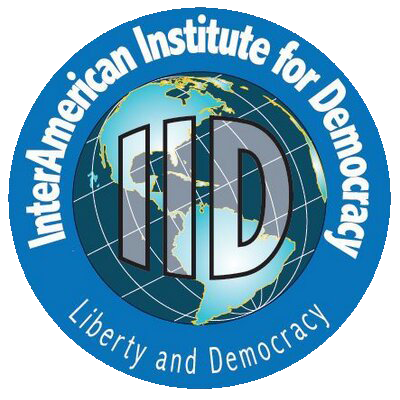"Organized Crime and Democracy in Latin America" Expert and Statesmen Forum at the U.S. Congress

Share:
Miami, October 6 — The Interamerican Institute for Democracy, Universidad Austral, Florida International University (FIU), and Infobae will host the forum “Organized Crime and Democracy in Latin America” at the U.S. Congress on October 9, with the aim of analyzing the increasing threat posed by transnational criminal networks to regional governments.
The event will be held in Room 200 of the U.S. Capitol Visitor Center in Washington D.C., from 10:00 a.m. to 1:00 p.m. (EST), and will be broadcast live in English, with simultaneous Spanish translation.
At a time of maximum geopolitical sensitivity—marked by the new U.S. agenda for the region and the support of several countries to these efforts to end the “21st Century Socialism” led by Venezuela, Cuba, and Nicaragua—more than a dozen top-tier academics, statesmen, and researchers will meet to debate how the expansion of criminal networks is corrupting political structures and undermining democratic stability.
U.S. Congressman Carlos Giménez will deliver the opening remarks, followed by two panels.
The first one, titled “Case Studies on Organized Crime,” will focus on detailed analyses across the entire region and will be moderated by Norberto Spangaro.
Douglas Farah, an international researcher, will present his works Feudal Argentina and Transnational Criminal Convergence: Santiago del Estero, while Juliana Velázquez Rodríguez, CEO of ProAntioquia, will introduce the case of Medellín, highlighting its transition from being the epicenter of drug trafficking in Colombia to the country’s tourist hub.
Carlos Gervasoni, a professor at Universidad Torcuato Di Tella, will discuss organized crime and politics in Argentina, and Mariano Federici, Director of K2 Integrity, will present on financial crimes linked to these structures.
Furthermore, Beatrice Rangel, former Chief of Staff of Venezuela, will address the key role of the Chavista dictatorship in these regional criminal networks, while Ivonne Baki, former Ambassador of Ecuador, will provide an overview on the situation in her country and the current efforts of Daniel Noboa’s government on the matter.
Finally, Eduardo Gamarra, a professor at FIU, will present his work Territories of Coca and Cocaine: Bolivia’s Drug Economy, Political Movements and Transnational Crime (2005–2025); Ricardo Israel, former presidential candidate of Chile, will provide an analysis of the advance of transnational crime in the country; and Robert Evan Ellis, a professor at the U.S. Army War College, will offer his panoramic vision of the Americas.
Moderated by journalist and lawyer Román Lejtman, the second panel, “Statesmen of the Americas,” will bring together distinguished political figures from the continent to analyze effective strategies and solutions to this problem, which transcends national borders.
This high-impact panel will feature regional leaders such as Luis Almagro, former OAS Secretary General and Director of the CASLA Democracy Observatory; Francisco Santos, former Vice President of Colombia; and Jamil Mahuad and Andrés Pastrana, former presidents of Ecuador and Colombia, respectively.
Interventions are also expected from influential local figures, including Senator Rick Scott, Congressmen Mario Díaz-Balart and Congresswoman María Elvira Salazar.
For event inquiries, interview requests, or accreditation, please contact Inés Ehulech by email at ehulechpress@intdemocratic.org.
Press Department
Interamerican Institute for Democracy
ehulechpress@intdemocratic.org
(+1) 954-658-1691